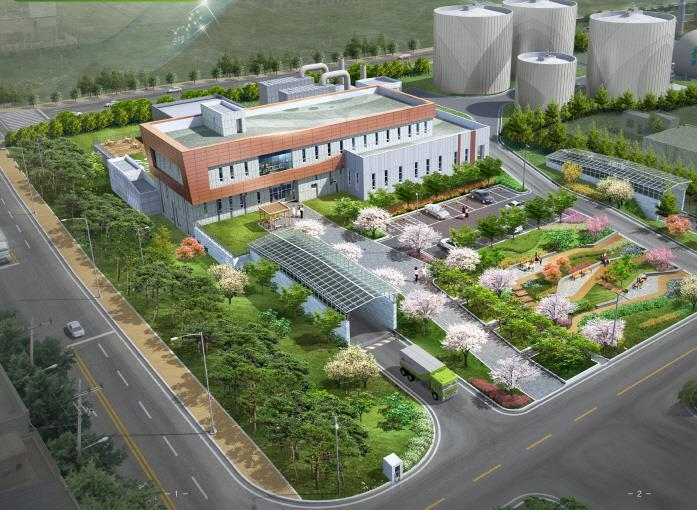South Korea to produce biogas from organic waste resources
By Lee Jung-jooPublished : Dec. 28, 2023 - 15:38

The Ministry of Environment said Thursday it will require industries that are heavy producers of organic waste resources to transition to the production of biogas starting Dec. 31.
According to the Environment Ministry’s biogas law, public and private industries that generate organic waste such as livestock manure and food waste will be required to produce them in the form of biogas.
Biogas is a gaseous renewable energy source produced from raw materials such as agricultural waste, plant material and manure and can be used in vehicles that operate on natural gas.
Biogasification obligations will be imposed on pig farms with more than 25,000 pigs, livestock manure treatment facilities that process more than 100 metric tons of manure per day and food waste generators that utilize more than 1,000 tons of food waste per year.
Based on the maximum amount of biogas that can be produced from organic waste that has been collected, both public and private industries must produce up to 80 percent of biogas by 2045. Government-run industries are first obliged to produce up to 50 percent of biogas by 2025, to steadily increase over the years until 2045. Private industries are required to produce up to 10 percent of biogas by 2026, to also steadily increase until 2045.
If those who are obligated to produce biogas fail to achieve the production target by the deadline, a fine will be imposed. However, industries can also exempt themselves from penalties through consignment production, or if they are in the process of building a biogas plant or have experienced a natural disaster.
The Ministry of Environment also added that it plans to expand its support to promote biogas production and utilization for privately run industries. By 2024, the ministry will support up to eight local governments to build biogas plants and subsidize private industries obliged to produce biogas, including installation and operation costs. As of 2023, the ministry only subsidized up to four local governments.
Additionally, the Ministry of Environment stated that it will install a biogas center in the Korea Environment Corp. and operate a comprehensive information system to efficiently carry out tasks related to biogas production and utilization from 2024 to 2026.
“With the enactment of the biogas law, the legal basis for expanding biogas production from organic waste resources has been completed,” said Kim Jong-ryul from the Ministry of Environment’s Water Environment Policy Division.
“The ministry will do its best to support those who are obligated producers of biogas to vitalize biogas production from next year.”







![[Weekender] How DDP emerged as an icon of Seoul](http://res.heraldm.com/phpwas/restmb_idxmake.php?idx=644&simg=/content/image/2024/04/25/20240425050915_0.jpg&u=)



![[KH Explains] No more 'Michael' at Kakao Games](http://res.heraldm.com/phpwas/restmb_idxmake.php?idx=644&simg=/content/image/2024/04/28/20240428050183_0.jpg&u=20240428180321)







![[Herald Interview] Mistakes turn into blessings in street performance, director says](http://res.heraldm.com/phpwas/restmb_idxmake.php?idx=652&simg=/content/image/2024/04/28/20240428050150_0.jpg&u=20240428174656)
